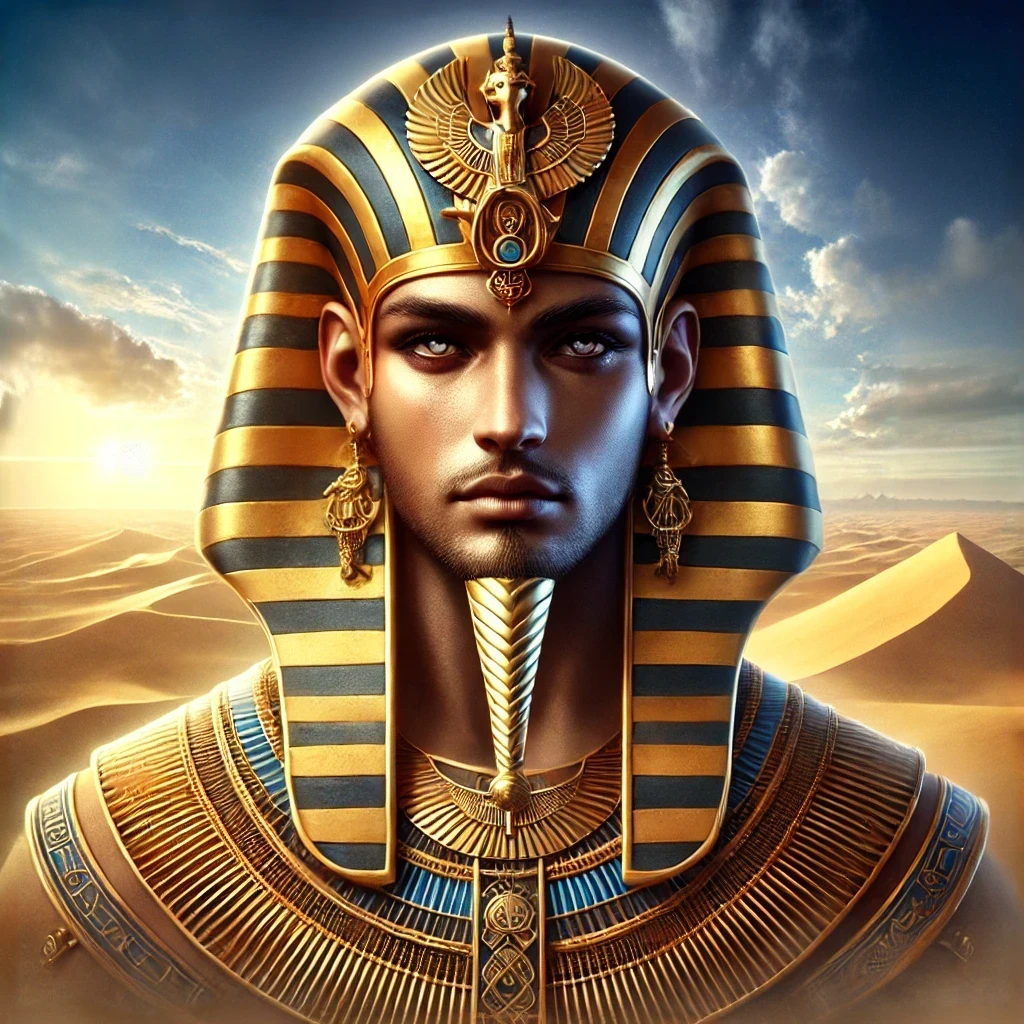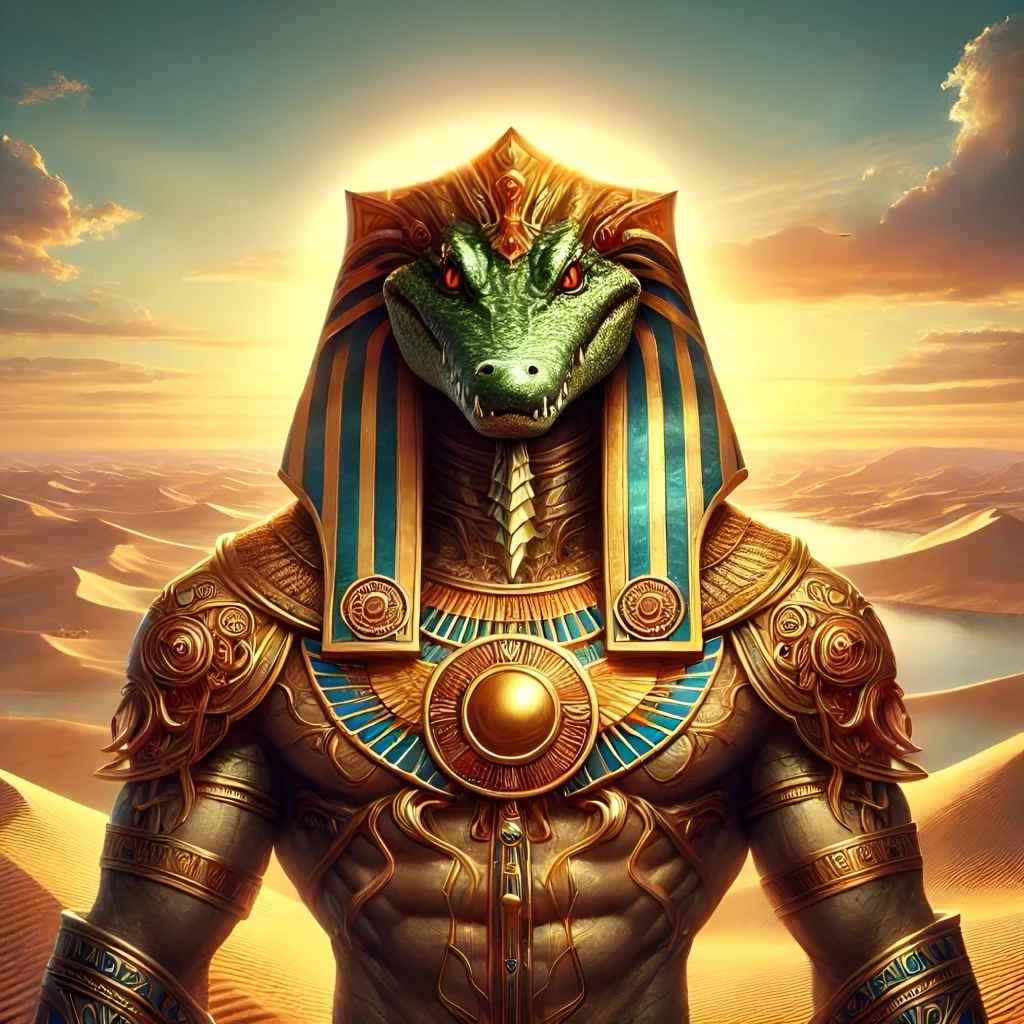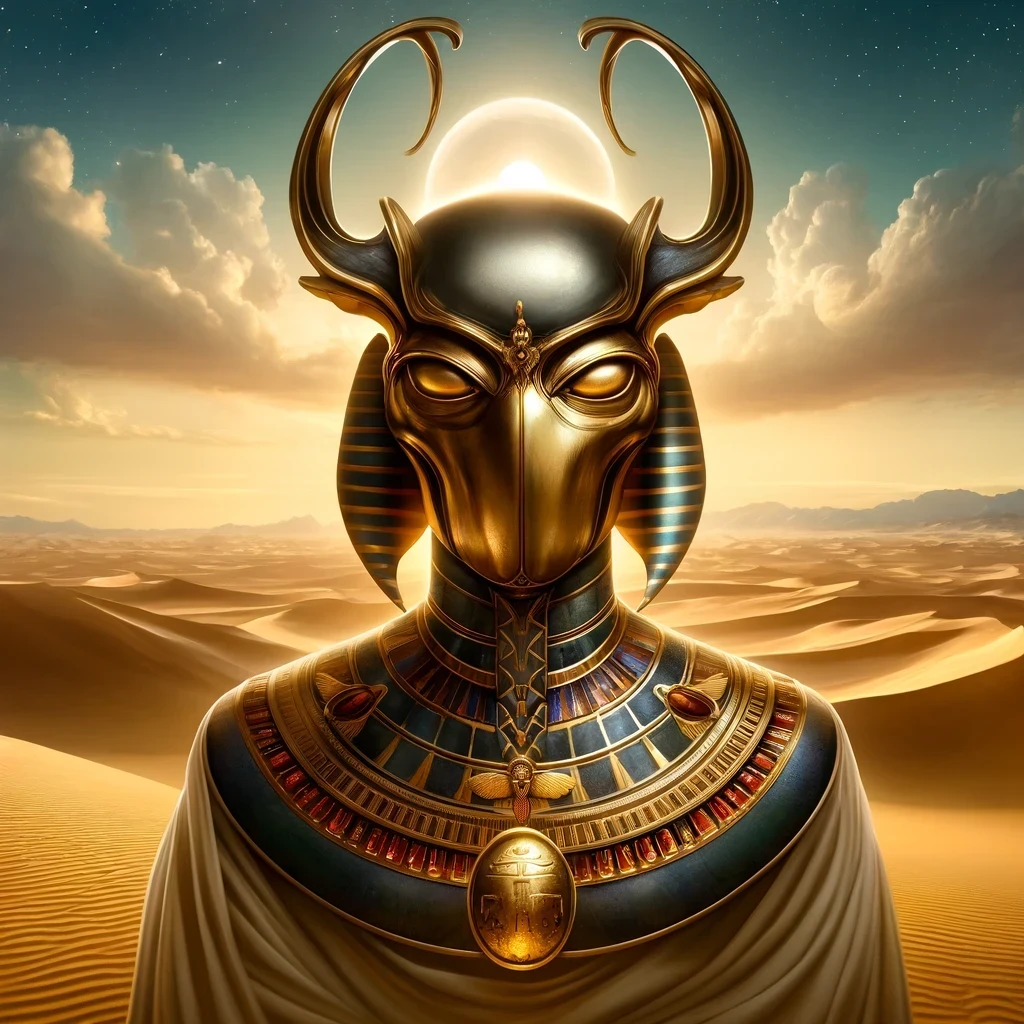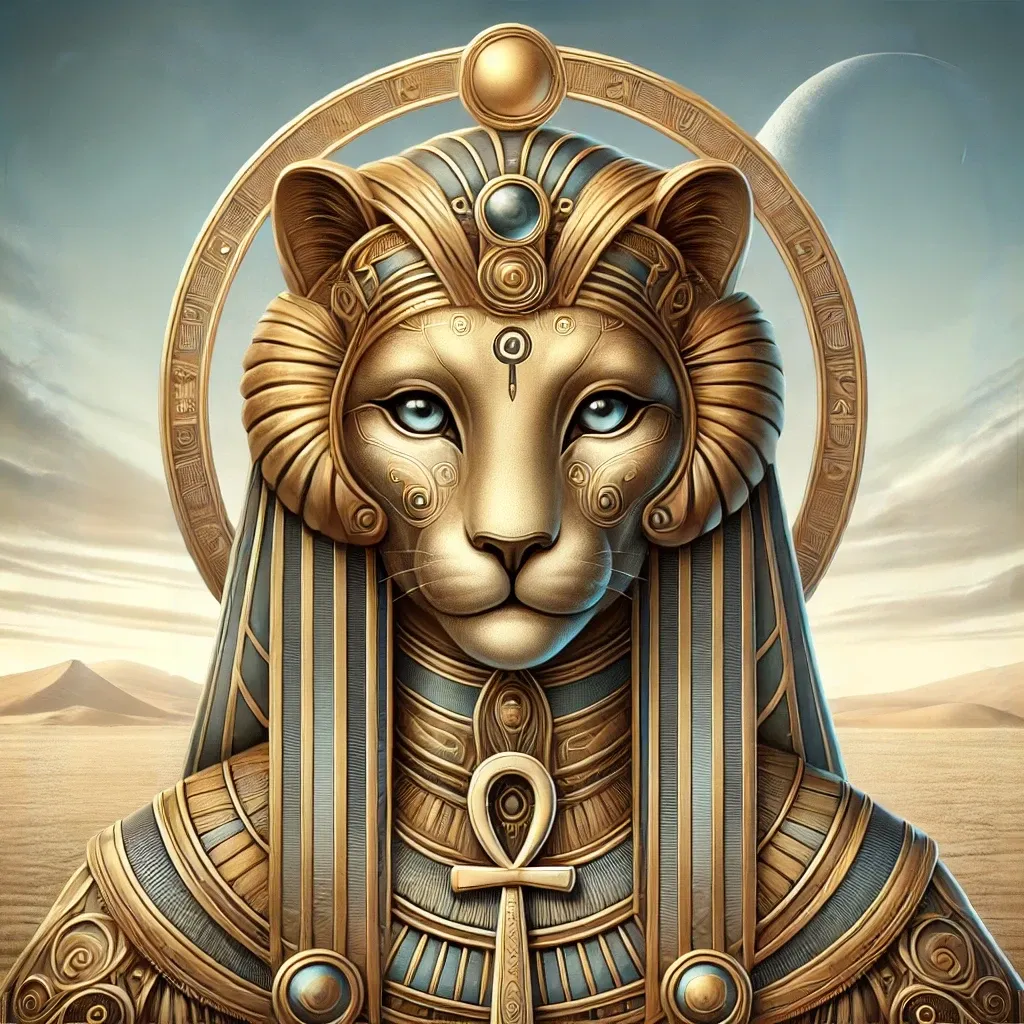The ancient Egyptian deity Sopdu, sometimes rendered as Septu or Sopedu, held a significant yet specialized role in the pantheon. Known as “Lord of the East” and “He of the Sharp Arrows,” his name is derived from the root “spd,” which signifies sharpness or brilliance. This martial god was closely associated with the eastern frontiers of Egypt, particularly the Sinai region, and was often venerated as a protector of the borders. His associations extended to the stars, particularly the morning star, aligning him with celestial and military prowess.
Origins
Historical Roots
The earliest references to Sopdu can be traced back to the Old Kingdom, where he appeared in inscriptions and texts as a protector of the king and guardian of Egypt’s eastern frontier. His primary cult center was located in the eastern desert, near the Sinai Peninsula, an area vital for its mineral wealth and strategic position.
Regional Worship
Sopdu’s worship was most prominent in the northeastern regions of Egypt, particularly near mining expeditions and military garrisons. The desert-dwelling Bedouins also revered him, associating the god with protection during their arduous travels.
Appearance
Iconography
The deity was typically depicted as a falcon-headed figure, symbolizing his connection to the sky and war. In some representations, he appears wearing a crown of tall ostrich feathers, emphasizing his status as a celestial guardian.
Variations
In other artistic interpretations, Sopdu was portrayed as a young man armed with a bow and arrows, underscoring his martial attributes. Occasionally, his image included a connection to the rising sun, reflecting his role as a protector of dawn and the eastern horizon.
Abilities
Protector of Borders
Sopdu was revered as a divine sentinel, safeguarding Egypt’s eastern borders from external threats. His role as a warrior deity made him a symbol of military strength and vigilance.
Celestial Connections
Associated with the star Sirius, Sopdu was linked to the heavens and considered a harbinger of renewal and prosperity. This celestial connection reinforced his role as a bringer of protection and guidance.
Patron of Miners
Due to his association with the eastern desert and the Sinai Peninsula, Sopdu was regarded as a guardian of miners. He was believed to protect those extracting turquoise and copper, essential resources for ancient Egypt.
Myths
The Guardian of Pharaoh
One notable tale highlights Sopdu’s intervention during a military campaign to secure Egypt’s borders. As the pharaoh’s protector, the deity is said to have manifested in a blinding light, guiding the king’s forces to victory.
Protector of Dawn
In myths related to the rising sun, Sopdu is portrayed as a warrior who clears the path for the sun god Ra, ensuring the safe journey of daylight across the sky.
Symbolism
Celestial Guardian
Sopdu’s association with the star Sirius tied him to cosmic order and renewal. He was seen as a beacon of hope and protection, particularly during the annual flooding of the Nile.
War and Vigilance
The deity’s martial symbolism resonated with his role as a defender of Egypt. His presence in military rituals emphasized preparedness and strength.
Associated Elements
Objects
- Bow and Arrows: Symbols of his martial prowess.
- Ostrich Feathers: Signifying his celestial status.
Animals
- Falcon: Representing the god’s sky-bound nature and keen vision.
Plants and Minerals
- Turquoise: Linked to his role as a patron of miners.
- Copper: Another resource tied to his protection in the eastern desert.
Relationships
Connections to Other Deities
- Ra: As a protector of the eastern horizon, Sopdu worked in harmony with Ra, ensuring the safe passage of the sun.
- Horus: His falcon imagery and protective nature echo the characteristics of Horus, reinforcing his martial and guardian roles.
Associations with Famous Figures
In royal inscriptions, Sopdu is often invoked as a protector of pharaohs, aligning his divine duties with the earthly king’s role as Egypt’s guardian.
Trivia
- Sopdu’s cult was closely associated with the military garrisons stationed along the eastern border.
- The deity’s name translates to “Sharp of Teeth,” a reference to his fierce protective nature.
- Some inscriptions link him with Hathor, the goddess of mining and turquoise, reinforcing his connection to the Sinai Peninsula.
- Ancient Egyptians believed that prayers to Sopdu ensured safe travel through the desert.
- His association with Sirius made him an important figure in agricultural and astronomical contexts.



